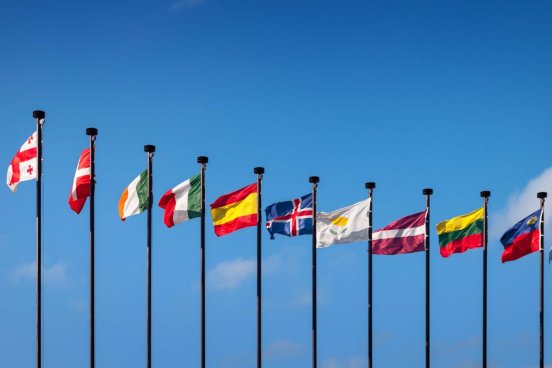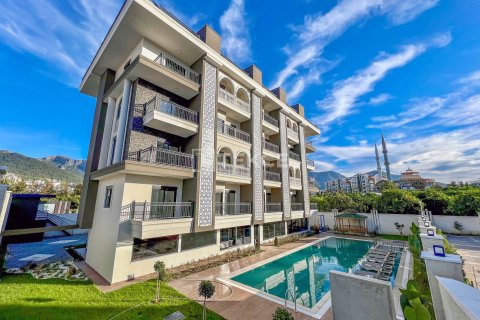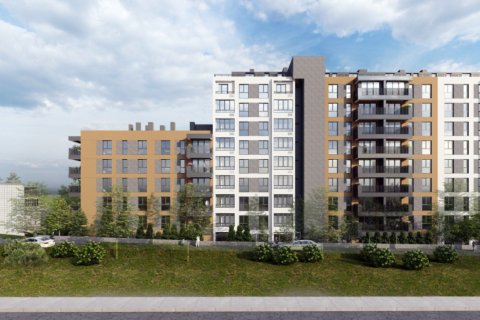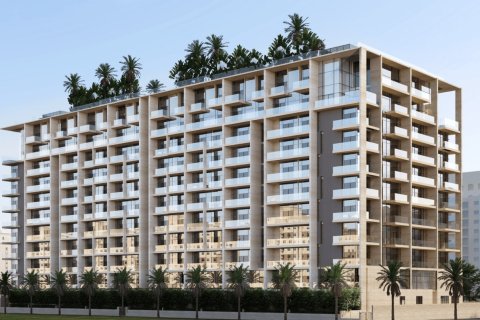
To legally reside in another country, you must obtain a residence permit (Permit to Stay) or other official authorization from the state. This can be a permanent residence permit or citizenship. They open different opportunities for foreigners.
A temporary residency allows you to live in the territory for a limited period after fulfilling certain conditions. For example, the basis for a resident permit may be employment or study in the country. This status usually requires regular renewal and does not grant full citizenship rights such as the right to vote.
The permanent residence permit card is the next step after a residence visa and provides more stability. It does not require regular renewal and allows most of the rights available to citizenship holders.
The resident passport is a document that confirms full membership in society and the state. With it, a person receives all civil rights, including the right to vote, as well as the ability to move freely and work within the framework of certain international agreements.
The choice between these statuses depends on personal circumstances, goals, and long-term life plans. In this article, we will explain the benefits of each type and tell you how to determine which one is best for a particular situation.
Content
How a visa differs from a residence permit, permanent residence permit, and citizenship
A visa, residence permit, permanent residency, and citizenship are different legal statuses, each of which has its peculiarities and provides different rights and obligations. If we look at why you need a visa from a legal point of view, its main purpose is to open access to cross the border of the country and stay on its territory for a certain period. It can be tourist, student, working. In theory, the visa does not give the right to long-term residence. But in practice, the concepts of residence permit and visa are so mixed up that in some countries even in official documents the statuses of residence permits have the name of visas but with different conditions.
A residence permit offers broader opportunities compared to a visa. It allows you to stay in the country for an extended period, usually from 1 to 10 years, and can be renewed under certain conditions. It also grants access to healthcare services and other social benefits.
Permanent residency provides even more rights and freedoms than a residence permit. Holders of permanent residency can live in the country indefinitely and enjoy nearly all the rights of citizens, except for the right to vote and hold public office. Permanent residency often requires renewal every five years, but this is a formality compared to the need to regularly renew a residence permit.
Citizenship is the highest legal status, offering the full range of rights and responsibilities, including the right to vote, hold public office, and receive protection from the state. Citizens can move and live in the country without any restrictions. The process of obtaining citizenship may include requirements such as continuous residence in the country, proficiency in the language, knowledge of the local culture, and, in some cases, renouncing previous citizenship.
What is a golden visa
A golden visa is a type of visa granted to foreign investors who invest significant funds in a country's economy. It is the most comfortable route to a residence permit for investments. These can include buying real estate, investing in a business or government bonds. Each country sets its criteria and minimum amounts required to obtain this residency.
Golden visas exist in many countries, including:
- Portugal
- Spain
- Greece
- Malta
The golden visa to the UAE, which allows residence in the Emirates for 5 or 10 years with the possibility of extension, is very popular.
What is a residence permit and how to get one
A residence permit is an official status that allows you to stay in the country from 1 to 10 years. It provides many privileges, including freedom of entry into the country, the possibility to purchase real estate, and access to medical care and educational facilities for children. It can usually be extended if you meet the starting criteria.
The fast track to a residence permit usually requires fulfilment of several conditions, such as marriage, employment, or education. For investors, there are special programs that grant residence permits for contributions to the local economy. They offer simplified procedures for obtaining and renewing residencies and do not always require permanent residence in the country. A residence permit for investors can cover all family members and in some cases provides free travel within the Schengen zone.
In some European countries, there are options of residence permits for financially independent persons who can prove their ability to financially support themselves. As a rule, it implies passive income, for example, from rental property, and prohibits employment in the country. It is important to consider quotas and application deadlines, as the number of places for this type of residence permit card may be limited.
A residence permit can also be granted on humanitarian grounds, such as the need for asylum due to an unstable situation in the applicant's home country or for temporary protection. In such cases, the process of obtaining the status may be expedited, and the requirements may be relaxed. In some countries, like Portugal and Greece, there are "golden visa" programs that provide access to a residence permit in exchange for investment in real estate or the country's economy. These programs often include minimal residency requirements and can be attractive to investors seeking flexibility in residency.
A residence permit can be a step towards obtaining permanent residency or citizenship. It’s important to remember that the conditions and requirements for obtaining it can vary significantly depending on the country. Therefore, it’s recommended to thoroughly research the laws and seek advice from immigration specialists to choose the most suitable path.
Some countries, like Spain and Italy, offer visas for retirees who can demonstrate sufficient financial assets to support their stay. These programs often include requirements for minimum income and health insurance. In other countries, such as Germany and France, a residence permit may be granted based on employment or study, making it accessible to a wide range of applicants.
Who can get a residence permit
Each state determines its criteria for granting a residence permit. Usually, other members of the applicant's family may have the right of residence together with the applicant:
- A spouse or common-law partner recognized by law.
- Dependent parents.
- Minor children.
- In some countries, adult children dependent on the applicant, for example, in Spain children of any age, in Portugal up to 26 years old, in Greece up to 21 years old, and in Malta up to 25 years old.
It takes an average of 3–6 months to obtain a residence permit in Europe. Family members can join the applicant throughout the residency period.
How to choose a residence permit program
The choice of program is directly related to where to get a permit and what goals the applicant pursues:
- Those who plan to move permanently to Europe should consider the programs of Switzerland and Austria.
- For those wishing to live by the sea, residence permits in Greece, Cyprus, Turkey, and Montenegro may be particularly attractive.
- For those who want to work or manage a business, the programs in Spain and the UAE offer excellent opportunities.
- Those interested in tax optimization should pay attention to Malta.
- To get citizenship in the EU without unnecessary spending and fuss, choose the program in Portugal, where you can apply for a passport after 5 years of residence permit.
- Those planning to change their place of work can get a Canadian residency under the programs of professional emigration.
What is a permanent residence and how to get it
A permanent residence permit is an opportunity to live in the country indefinitely. Unlike a residence permit, which needs to be renewed regularly, a permanent residence permit is valid without time limits, but it usually has to be renewed every 5 years.
In most EU countries, you can get a permit resident card after 5 or 7 years of legal residence in the country. Holders of the status enjoy almost all the rights of local citizens, including business opportunities and access to social benefits. However, they cannot participate in elections or occupy positions in state bodies.
The process of obtaining permanent residency may involve passing exams to demonstrate language proficiency and knowledge of the country’s culture, as well as providing proof of financial stability and a clean criminal record. In some countries, such as Germany and France, holding permanent residency provides free movement and employment within other Schengen Area countries without the need for additional visas or permits.
In countries like Canada and Australia, the status provides access to free healthcare and educational programs, making it particularly attractive for families with children. In the United States, permanent residency holders, known as green card holders, can apply for citizenship after five years of residence, unlocking additional opportunities and rights.
Some countries offer expedited residency programs for investors and entrepreneurs. For example, Portugal and Spain grant residency through investments in real estate or business, allowing applicants to obtain status in a shorter period.
It is important to note that the conditions and requirements for obtaining permanent residency can vary significantly depending on the country. Therefore, it is recommended to thoroughly study immigration laws to choose the most suitable path to obtaining residency in your desired location.
Countries where you can get a permanent residence permit
Portugal: with a golden visa, you can get a residence permit, and after 5 years, apply for permanent residence.
Germany grants permanent residence subject to living in the country for 5 years, proof of income, and knowledge of the German language.
Spain: residence permit is granted through the golden visa program, and after 5 years, you can obtain a permanent residence permit.
Greece: you can get a residence permit through investment, and after 5 years of living in the country to apply for permanent residence.
Italy opens access to obtaining a permanent residence permit after 5 years of residence, provided you have a stable income and health insurance.
Thailand grants residence on condition of legal living in the country for 3 years.
In Mauritius, you can immediately apply for a residence permit if you invest in real estate.
What is a resident card or citizenship and how to get it
Citizenship is a legal status that grants a person certain rights and obligations in the state, such as the right to participate in political life and access to social security. Citizenship can be obtained in several ways, depending on the laws of a particular country:
- By birth. Many countries grant citizenship to all children born on their territory or to children whose parents are citizenship holders.
- Through naturalization. This method requires a long period of residence in the country, proof of integration into society, knowledge of the language and culture, and no criminal record.
- Some countries offer an accelerated path to citizenship for foreigners who are legally married to their national.
- Citizenship for investment. A number of countries grant a passport to individuals who have made significant investments in the economy.
Citizenship can be granted by government decision in exceptional cases, for example, for outstanding merits. Each country has its own rules, which should be studied in more detail. Some countries have a procedure for obtaining a second citizenship, while some countries require a prior renunciation of the existing citizenship, as dual citizenship is prohibited.
Some countries, such as Turkey and Malta, offer citizenship by investment programs, allowing individuals to obtain a passport in exchange for significant investments in real estate or the country’s economy. In other countries, like Germany and Austria, the naturalization process can take up to 10 years, requiring applicants to prove their integration and knowledge of the language. In the United States, citizenship can be obtained after 5 years of residency with a green card.
In some countries, like South Korea and China, dual citizenship is prohibited, and acquiring a new passport requires renouncing the previous one. Meanwhile, countries like Canada and the United Kingdom allow dual citizenship, enabling individuals to retain their rights and obligations in both countries.
The process of obtaining citizenship and the associated requirements can vary greatly depending on the country. It is important to thoroughly research the conditions in each specific case to choose the most suitable option.
Countries where you can obtain citizenship
Foreigners can obtain citizenship for investment in such countries as:
- Malta
- Turkey
- Kitts and Nevis
- Antigua and Barbuda
- Vanuatu
- Grenada
This list demonstrates the variety of possibilities and is not exhaustive.
Citizenship by naturalization, after living with a residence permit and permanent residence permit, can be obtained in many other countries: USA, Canada, Germany, France, Italy, Spain, and others.
What to choose: residence permit, residence permit, or citizenship
The choice between a residence permit, permanent residence permit, and citizenship depends on many factors, including individual goals, financial ability, family circumstances, and personal preference for a country. To simplify your choice, it is important to carefully compare available programs and their associated costs, especially if the entire family is being considered.
Depending on the situation, citizenship may be the only option to achieve certain goals, while in other cases, a residence permit will suffice. Each country has unique conditions for obtaining status: for example, Malta offers either status, while Spain, Greece, and Portugal offer residence permits, with the possibility of obtaining citizenship in Portugal in as little as 5–10 years. Austria and Switzerland offer residence permits for those who demonstrate financial independence, while the Caribbean Islands and Vanuatu offer second citizenship for a relatively small investment.
Serbia offers residency through real estate investments, which can lead to permanent residency and, eventually, citizenship. In Croatia, a passport can be obtained through naturalization after 8 years of continuous legal residence. In Montenegro, purchasing property grants the right to temporary residency, which can be renewed annually, and after 5 years, one can apply for permanent residency.
Therefore, the choice between temporary residency, permanent residency, and citizenship depends on numerous factors. It's important to consider all available options and their requirements to make the best decision for yourself and your family.
Citizenship-By.Investments specialists will help you choose the optimal program and advise you on the differences between residency and citizenship in specific countries.















